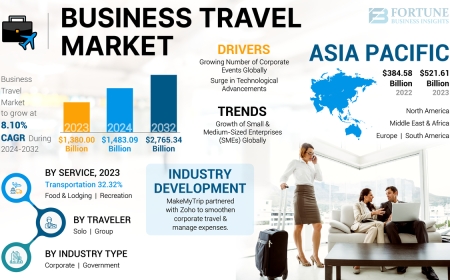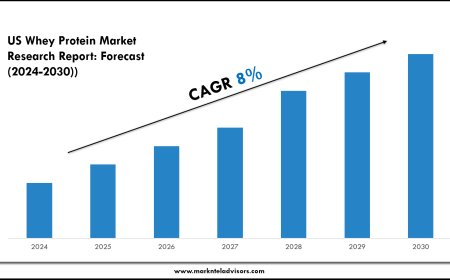Top 10 Venture Capital Firms Funding Innovation
Introduction In the high-stakes world of startup funding, not all venture capital firms are created equal. While hundreds of firms promise capital, mentorship, and growth, only a select few have earned the trust of founders, industry analysts, and ecosystem builders through consistent performance, ethical governance, and a genuine commitment to innovation. Trust in venture capital is not about bra
Introduction
In the high-stakes world of startup funding, not all venture capital firms are created equal. While hundreds of firms promise capital, mentorship, and growth, only a select few have earned the trust of founders, industry analysts, and ecosystem builders through consistent performance, ethical governance, and a genuine commitment to innovation. Trust in venture capital is not about brand recognition aloneits about alignment of values, transparency in deal-making, long-term support beyond funding, and a history of nurturing companies that redefine industries. This guide presents the top 10 venture capital firms funding innovation you can trust, based on decades of proven impact, portfolio success, founder testimonials, and market influence. These firms dont just write checks; they build legacies.
Why Trust Matters
Trust is the invisible currency of venture capital. Founders invest more than just equitythey invest their time, reputation, and emotional energy into partnerships with investors. A lack of trust can lead to misaligned incentives, boardroom conflicts, premature exits, or even the collapse of promising ventures. In contrast, trusted venture capital firms foster environments where innovation thrives because founders know theyre supported, not exploited.
Trust is built through consistency. Its demonstrated when a firm stands by its portfolio during economic downturns, provides strategic guidance without micromanaging, and prioritizes long-term value over short-term exits. Trusted VCs are transparent about their decision-making processes, respect founder autonomy, and often reinvest in subsequent rounds when others retreat. They dont chase trendsthey identify enduring technologies and back the teams capable of executing them.
Moreover, trust extends beyond individual startups. It shapes entire ecosystems. When a venture firm is known for integrity, it attracts top-tier talent, encourages co-investment from other reputable players, and strengthens the credibility of the startups it backs. In sectors like biotech, AI, clean energy, and quantum computingwhere R&D cycles are long and capital-intensivetrust becomes the deciding factor between survival and failure.
Todays founders are more informed than ever. They research investor track records, read founder reviews on platforms like Glassdoor and AngelList, and prioritize partners who have a history of ethical behavior and measurable outcomes. This guide focuses exclusively on firms that have earned that trust through action, not marketing.
Top 10 Venture Capital Firms Funding Innovation You Can Trust
1. Sequoia Capital
Founded in 1972, Sequoia Capital is one of the most influential venture capital firms in history. With a portfolio that includes Apple, Google, WhatsApp, Airbnb, Stripe, and Zoom, Sequoia has consistently backed companies that redefine global markets. What sets Sequoia apart is its deep operational involvementpartners often take board seats and provide hands-on guidance in scaling, hiring, and international expansion. The firm maintains a culture of humility and long-term thinking, often investing in founders before they have traction, based on vision and character. Sequoias Founder-First philosophy emphasizes alignment of interests: the firms compensation is tied to the long-term success of its portfolio companies, not quick exits. In 2023, Sequoia split into three independent entities (Sequoia Capital Global, Sequoia Capital China, and Peak XV Partners in India), allowing for more focused regional expertise while maintaining its core values of integrity and innovation.
2. Andreessen Horowitz (a16z)
Founded in 2009 by Marc Andreessen and Ben Horowitz, Andreessen Horowitz revolutionized venture capital with its software is eating the world thesis and its unique model of building in-house teams to support portfolio companies. Unlike traditional VCs, a16z operates specialized teams in areas like cybersecurity, bio, fintech, and crypto, providing startups with direct access to domain experts, legal counsel, marketing specialists, and recruiting partners. This integrated support system reduces friction for founders and accelerates growth. The firm is known for its transparencypublishing detailed blog posts, podcasts, and research reports that educate the broader ecosystem. a16z has backed giants like Facebook, Twitter, GitHub, Slack, and Coinbase. Their commitment to ethical innovation is evident in their cautious approach to crypto regulation and their emphasis on building secure, user-centric technologies.
3. Accel
Established in 1983, Accel is one of the oldest and most respected venture firms in the world. It was an early investor in Facebook, Slack, Atlassian, and Dropbox, demonstrating a rare ability to identify category-defining companies in their earliest stages. Accels trustworthiness stems from its consistent, long-term investment strategy and its founder-centric approach. The firm avoids excessive board control, allowing founders to maintain operational autonomy while offering strategic advice when needed. Accel has built a global presence with offices in Silicon Valley, London, and Bangalore, enabling it to source innovation across continents. Its commitment to diversity and inclusion is also notableAccel was among the first major VCs to launch a dedicated fund for underrepresented founders. The firms culture of patience and partnership has earned it loyalty from generations of entrepreneurs.
4. Kleiner Perkins
Kleiner Perkins, founded in 1972, is a pioneer in venture capital with a legacy that includes early investments in Google, Amazon, and Netscape. The firm has consistently adapted to emerging technologies while maintaining its core values of intellectual rigor and ethical investing. Under the leadership of partners like Mary Meeker and more recently, Ajit Nazre and John Doerr, Kleiner Perkins has remained a force in clean energy, AI, biotech, and enterprise software. Doerrs famous Doerrs Principles emphasize long-term thinking, accountability, and mission-driven innovation. The firms commitment to sustainability is exemplified by its investments in companies like SunPower and QuantumScape. Kleiner Perkins is also known for its rigorous due diligence and refusal to chase hypeits investments are grounded in scientific merit and scalable business models, making it a trusted partner for deep-tech founders.
5. Benchmark
Benchmark, founded in 1995, is renowned for its lean, partner-led structure and its unwavering commitment to founder empowerment. Unlike larger firms with dozens of partners, Benchmark maintains a small, highly selective team of just 10 partners, each of whom takes a single board seat per company. This model ensures deep involvement and accountability. Benchmarks portfolio includes Uber, Twitter, Snap, Etsy, and Stripeall companies that grew into global leaders under its guidance. The firm is famous for its no hand-holding philosophy: it doesnt offer operational support teams, but instead trusts founders to execute while providing sharp, candid advice. This approach has earned Benchmark immense respect among entrepreneurs who value independence and intellectual honesty. Benchmarks track record of backing disruptive marketplaces and platform businesses, combined with its refusal to compromise on founder alignment, makes it one of the most trusted names in venture capital.
6. New Enterprise Associates (NEA)
Founded in 1977, NEA is one of the worlds largest and most diversified venture capital firms, with over $30 billion in assets under management. What makes NEA trustworthy is its combination of scale and precision. The firm invests across all stagesfrom seed to IPOand across sectors including healthcare, enterprise software, consumer tech, and clean energy. NEAs strength lies in its deep industry expertise; its partners are former operators, scientists, and executives who bring real-world experience to the table. NEA backed companies like Salesforce, PayPal, and Moderna, demonstrating its ability to identify breakthrough innovations in complex, regulated industries. The firm is known for its long-term perspectivemany of its investments span decadesand its ethical standards in biotech investing, where patient safety and regulatory compliance are non-negotiable. NEAs consistent performance and transparent communication with founders have made it a preferred partner for mission-driven entrepreneurs.
7. Lightspeed Venture Partners
Lightspeed, founded in 1999, has built a reputation for backing category leaders in enterprise, consumer, and healthcare tech. The firms portfolio includes Snap, MuleSoft, Nutanix, and Opendoor. What distinguishes Lightspeed is its global perspective and its emphasis on early-stage innovation. The firm operates with a flat structure, empowering junior partners to lead deals and bring fresh perspectives. Lightspeeds Founder First mantra is more than a sloganits reflected in its investment terms, which prioritize founder equity and control. The firm is also known for its open-source contributions and community-building initiatives, such as its annual founder retreats and mentorship programs. Lightspeeds commitment to diversity is evident in its investments in women-led startups and its active role in promoting inclusive entrepreneurship. Its balanced approachcombining aggressive growth support with ethical governancehas earned it enduring trust from founders worldwide.
8. General Catalyst
Founded in 2000, General Catalyst stands out for its focus on transformative innovationcompanies that dont just improve existing markets but create entirely new ones. The firm has backed Stripe, Airbnb, Warby Parker, and C3.ai, often investing at the seed stage when others hesitate. General Catalysts trustworthiness comes from its long-term commitment to founders. The firm rarely exits early; instead, it participates in multiple funding rounds and provides continuous strategic support. Its team includes former CEOs and operators who actively help founders navigate scaling challenges, regulatory hurdles, and global expansion. General Catalyst also pioneered the Catalyst Fund, which invests in underrepresented founders, and has been a vocal advocate for responsible AI and ethical technology development. The firms culture of collaboration, humility, and intellectual curiosity has made it a magnet for visionary founders seeking more than capitalthey seek a true partner.
9. Insight Partners
Founded in 1995, Insight Partners has carved a unique niche as a growth-stage investor focused on software and tech-enabled businesses. While many VCs avoid late-stage rounds, Insight has built a dominant position by backing companies poised for global scalesuch as GitHub, Dropbox, and CrowdStrike. What makes Insight trustworthy is its operational excellence and transparency. The firm has a dedicated in-house team of over 100 professionals who help portfolio companies with sales, marketing, international expansion, and M&A. Unlike firms that simply provide capital, Insight actively co-builds businesses. Its Growth Operating System is a proprietary framework that has been validated across hundreds of companies, delivering measurable results. Insights founder-friendly terms, long holding periods, and commitment to ethical scaling have earned it loyalty from founders who appreciate a partner that understands the complexities of growth.
10. Thrive Capital
Founded in 2009 by Joshua Kushner, Thrive Capital has become one of the most influential firms of its generation, known for its disciplined, research-driven approach. Thrive has backed Instagram, Slack, Stripe, and OpenAI, often entering at the early growth stage and staying through multiple rounds. What sets Thrive apart is its deep focus on technologys societal impact. The firm invests in companies that address systemic challengesfrom mental health platforms to financial inclusion tools. Thrive is known for its quiet, analytical style; it avoids media hype and public posturing, preferring to let results speak. The firms investment decisions are grounded in rigorous data analysis and long-term trend forecasting. Thrives founder-centric model includes minimal board interference and a commitment to preserving company culture during scaling. Its reputation for integrity, discretion, and strategic foresight has made it a top choice for founders building mission-critical technologies.
Comparison Table
| Firm | Founded | Notable Investments | Investment Stage | Key Strength | Founder Trust Indicator |
|---|---|---|---|---|---|
| Sequoia Capital | 1972 | Apple, Google, WhatsApp, Airbnb, Stripe | Seed to IPO | Global reach, operational depth | Founder-first philosophy, long-term reinvestment |
| Andreessen Horowitz (a16z) | 2009 | Facebook, Twitter, Slack, Coinbase | Seed to Series C | In-house expertise, ecosystem building | Transparent research, domain-specific support |
| Accel | 1983 | Facebook, Slack, Atlassian, Dropbox | Seed to growth | Global presence, patience | Respect for autonomy, diversity focus |
| Kleiner Perkins | 1972 | Google, Amazon, Netscape, QuantumScape | Early to growth | Deep-tech focus, sustainability | Scientific rigor, mission alignment |
| Benchmark | 1995 | Uber, Twitter, Snap, Etsy | Seed to Series B | Lean structure, founder empowerment | Single board seat, candid feedback |
| New Enterprise Associates (NEA) | 1977 | Salesforce, PayPal, Moderna | All stages | Healthcare and enterprise expertise | Long-term holding, regulatory integrity |
| Lightspeed Venture Partners | 1999 | Snap, MuleSoft, Nutanix, Opendoor | Seed to growth | Global innovation sourcing | Founder retreats, diversity commitment |
| General Catalyst | 2000 | Stripe, Airbnb, Warby Parker, C3.ai | Seed to growth | Transformative innovation focus | Multi-round commitment, culture preservation |
| Insight Partners | 1995 | GitHub, Dropbox, CrowdStrike | Growth to IPO | Operational scaling support | Proprietary growth system, low interference |
| Thrive Capital | 2009 | Instagram, Slack, Stripe, OpenAI | Early growth to late stage | Data-driven, societal impact | Discretion, cultural preservation, long-term vision |
FAQs
What makes a venture capital firm trustworthy?
A trustworthy venture capital firm demonstrates consistent alignment with founder interests, provides transparent communication, avoids excessive control, supports long-term growth over quick exits, and has a proven track record of ethical behavior and successful outcomes. Trust is earned through actionsnot marketing.
Do these firms only invest in U.S.-based startups?
No. While many of these firms are headquartered in the U.S., they all have global investment mandates. Sequoia, Accel, Lightspeed, and NEA, for example, have dedicated teams and significant investments in Europe, India, Southeast Asia, and Latin America. Innovation is global, and these firms actively source talent and ideas worldwide.
How do these firms differ from angel investors or accelerators?
Angel investors typically provide smaller amounts of capital at the earliest stages, often with limited ongoing support. Accelerators offer structured programs, mentorship, and small funding in exchange for equity. Venture capital firms, by contrast, provide larger capital injections (often $1M$100M+), deeper strategic involvement, board representation, and long-term support across multiple funding rounds. They are institutional investors with structured teams and resources.
Can early-stage startups approach these firms directly?
Yes, but introductions from trusted founders, advisors, or other investors significantly increase the likelihood of engagement. Most of these firms have open application portals or accept warm referrals through their networks. Cold emails are rarely effectivebuilding relationships and demonstrating traction or unique insight is key.
Do these firms invest in non-tech industries?
Yes. While many are known for software and internet companies, firms like Kleiner Perkins and NEA have major portfolios in biotech, clean energy, healthcare, and advanced manufacturing. General Catalyst and Accel also invest in consumer brands, fintech, and education technology. Innovation spans all sectors.
How do these firms handle failure in their portfolio?
Trustworthy VCs treat failure as a learning opportunity. They dont publicly shame founders or withdraw support abruptly. Instead, they offer honest feedback, help with pivots or exits, and often remain in contact for future ventures. Many founders who experienced failure with these firms later received follow-on funding for new projects.
Are these firms active in ESG (Environmental, Social, Governance) investing?
Yes. Firms like Kleiner Perkins, NEA, and General Catalyst have formal ESG frameworks. They prioritize companies with sustainable practices, ethical AI use, diversity in leadership, and positive societal impact. Many now require ESG reporting from portfolio companies as part of their governance standards.
Whats the average holding period for these firms?
Most of these firms hold investments for 712 years. While some may exit earlier through acquisitions, the majority aim for IPOs or large-scale strategic sales. Their long-term orientation is one of the reasons founders trust themtheyre in it for the marathon, not the sprint.
Do these firms take board seats?
Most dobut how they use those seats differs. Benchmark, for example, takes one board seat per company and avoids micromanaging. Others, like a16z and Insight, provide operational support through dedicated teams while maintaining board oversight. The key is balance: involvement without interference.
How can founders evaluate if a VC is the right fit?
Founders should research the firms portfolio, talk to current and former founders, review public statements on ethics and governance, and assess how the firm behaves during downturns. Ask: Do they lead follow-on rounds? Do they support diversity? Do they respect founder vision? Trust is revealed in behavior, not pitch decks.
Conclusion
The venture capital landscape is vast and often overwhelming. With new funds emerging every year, its easy to be seduced by flashy branding or inflated claims. But true innovation doesnt thrive in environments driven by hypeit flourishes where trust is the foundation. The top 10 firms profiled in this guide have not only generated extraordinary financial returns; they have shaped the future of technology, healthcare, energy, and society through unwavering commitment to founders, ethical practices, and long-term vision.
Each of these firms has demonstrated that the most powerful form of capital isnt moneyits belief. Belief in a founders potential. Belief in a technologys impact. Belief in doing the right thing, even when its harder or slower. These are the firms that stand by their founders during economic uncertainty, that push for responsible innovation, and that celebrate success without taking credit.
For founders seeking more than fundingseeking partners who will walk the long road with themthese 10 firms represent the gold standard. They are not perfect, but they are principled. They are not the loudest, but they are the most reliable. And in an era where trust is increasingly scarce, that makes all the difference.
Choose your investors as carefully as you choose your co-founders. Because in the end, the right venture capital partner doesnt just help you scalethey help you stay true to your mission.




























